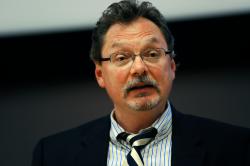2026
Now seven full years since the terrible war began in Syria, the conflict has repeatedly morphed, and has varied in intensity while remaining a humanitarian disaster throughout. With estimates of over half a million killed, and more than 10 million displaced, UNICEF reported that 2017 was the deadliest year of the war for children. In addition to a modest number of U.S. forces, Russia, Turkey, and Iran are now deeply engaged in the Syrian conflict, along with many non-state actors, and occasionally Israel as well. Given that many groups and states have entered the conflict, concerns about a wider war remain, even after the defeat of ISIS in most areas where it once controlled territory. It is also not clear how the war will end or if something resembling peace will eventually be attained. Moreover, the challenges will hardly end, since massive reconstruction efforts will surely be required.
On March 23, the Foreign Policy program at Brookings hosted a discussion about the ongoing conflict in Syria. Panelists included Brookings Senior Fellows Suzanne Maloney and Amanda Sloat. Pavel Baev, a nonresident senior fellow at Brookings and research professor at the Peace Research Institute in Oslo, also participated. Brookings Senior Fellow Michael O’Hanlon moderated the conversation, while adding his own perspectives.
Following their conversation, panelists took audience questions.
Agenda
-
March 23
-
Moderator
 Michael E. O’Hanlon Director of Research - Foreign Policy, Director - Strobe Talbott Center for Security, Strategy, and Technology, Co-Director - Africa Security Initiative, Senior Fellow - Foreign Policy, Strobe Talbott Center for Security, Strategy, and Technology, Philip H. Knight Chair in Defense and Strategy @MichaelEOHanlon
Michael E. O’Hanlon Director of Research - Foreign Policy, Director - Strobe Talbott Center for Security, Strategy, and Technology, Co-Director - Africa Security Initiative, Senior Fellow - Foreign Policy, Strobe Talbott Center for Security, Strategy, and Technology, Philip H. Knight Chair in Defense and Strategy @MichaelEOHanlon
-




